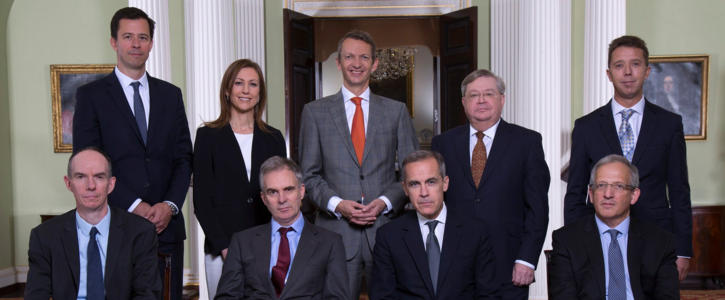1,000 signatures reached
To: The Rt Hon Philip Hammond MP
Appoint more women, BAME and non-finance sector candidates to the Bank of England's senior positions

We call on the Chancellor to appoint a more diverse range of candidates to the Bank of England’s policy making committees. They are currently disproportionately white, male and drawn from a narrow range of professional and educational backgrounds.
Why is this important?
The Bank of England's policy making committees make decisions which have a huge impact on everyone in Britain, yet their members come from a narrow range of backgrounds.
Over the last decade, the Bank’s policies have disproportionately benefited the wealthiest in society, while doing very little for the rest of us. [1] Unless its most powerful committees are representative of society as a whole, they won’t fully understand how every community is affected by their decisions.
75% of those on the Monetary Policy Committee, which is in charge of setting interest rates and policy such as quantitative easing, were working in the City or for large companies before taking up their post.
There are no members with recent experience working on behalf of the interests of the rest of society, such as in trade unions or civil society organisations.
And out of the 23 members on the Bank’s most important committees, only two are female, and BAME communities are underrepresented.
Appointments to the Bank’s most senior positions are made by the Chancellor. We support Chair of the Treasury Select Committee, Nicky Morgan MP's recent call for Philip Hammond to seek out and appoint a more diverse range of candidates.
-----
[1] Researchers at civil society organisations like Positive Money have shown that quantitative easing and low interest rates - the Bank of England’s main policy responses to the crash - have benefited the richest households by almost 200 times as much as the poorest. See our website for more details.
Over the last decade, the Bank’s policies have disproportionately benefited the wealthiest in society, while doing very little for the rest of us. [1] Unless its most powerful committees are representative of society as a whole, they won’t fully understand how every community is affected by their decisions.
75% of those on the Monetary Policy Committee, which is in charge of setting interest rates and policy such as quantitative easing, were working in the City or for large companies before taking up their post.
There are no members with recent experience working on behalf of the interests of the rest of society, such as in trade unions or civil society organisations.
And out of the 23 members on the Bank’s most important committees, only two are female, and BAME communities are underrepresented.
Appointments to the Bank’s most senior positions are made by the Chancellor. We support Chair of the Treasury Select Committee, Nicky Morgan MP's recent call for Philip Hammond to seek out and appoint a more diverse range of candidates.
-----
[1] Researchers at civil society organisations like Positive Money have shown that quantitative easing and low interest rates - the Bank of England’s main policy responses to the crash - have benefited the richest households by almost 200 times as much as the poorest. See our website for more details.

